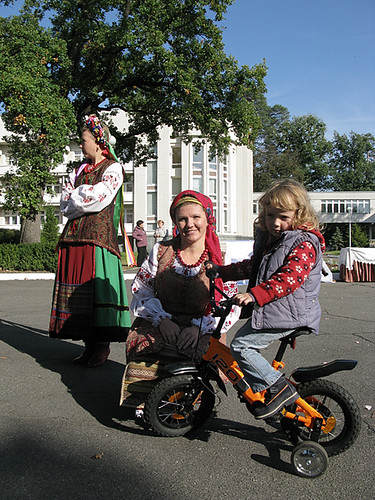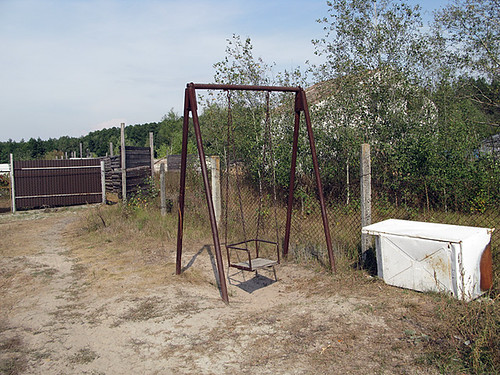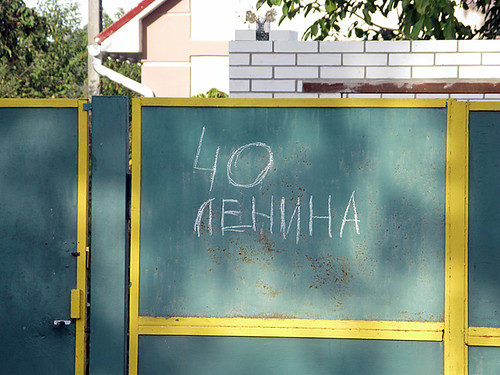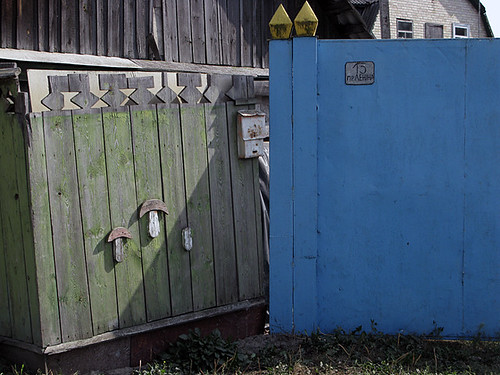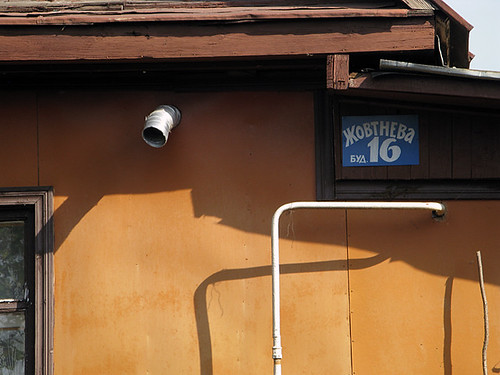I was tuning in to random radio stations today, and caught
the following exchange (RUS) about Ukraine on Radio Echo of Moscow:
К. ЛАРИНА: Юрий Иванович, большое Вам спасибо. Напомним ещё раз. Это Юрий Иванович Шаповал, наш гость из Украины. Видите, как я себя веду! Когда Вас тут нет, я говорю «на Украине». А когда Вы пришли, мне неудобно так говорить.
Ю. ШАПОВАЛ: Вы почаще меня приглашайте.
В. ДЫМАРСКИЙ: Кстати говоря, здесь единственный упрёк Юрию Ивановичу могу сделать – то, что я считаю, что не должны мы менять русский язык в угоду, извините, соседнему…
К. ЛАРИНА: Должны! Надо уважать друг друга! Что, тебе жалко, что ли? Ну-ка скажи – в Украину!
В. ДЫМАРСКИЙ: Ну, мы же Париж…
К. ЛАРИНА: Скажи – в Украину!
Ю. ШАПОВАЛ: Но заметьте, я на вас не давлю. Разговаривайте, как хотите.
К. ЛАРИНА: Спасибо большое, Юрий Иванович.
It's a wrap-up of a rather interesting talk about Crimea, and the hosts and their Ukrainian guest are suddenly discussing the correct way of saying 'in/to Ukraine' in Russian - '
на Украине/Украину' vs. '
в Украине/Украину.' We use the latter, they prefer the former. It's a bit like
the English usage debate: Ukraine with or without the definite article.
Ksenia Larina, one of the hosts, tells Yuri Shapoval, a Ukrainian historian, that in his presence she doesn't feel comfortable saying it the Russian way, while the other host, Vitali Dymarsky, says that he doesn't think they should be changing the Russian language to please the neighbor - that's his "only criticism" of his Ukrainian guest. Larina tells Dymarsky we should respect one another and teasingly urges him to say it the Ukrainian way. Shapoval, however, doesn't really care how they say it: "But please note, I'm not pressuring you. Talk in whatever way you like."
It's a very telling little exchange, I guess.

